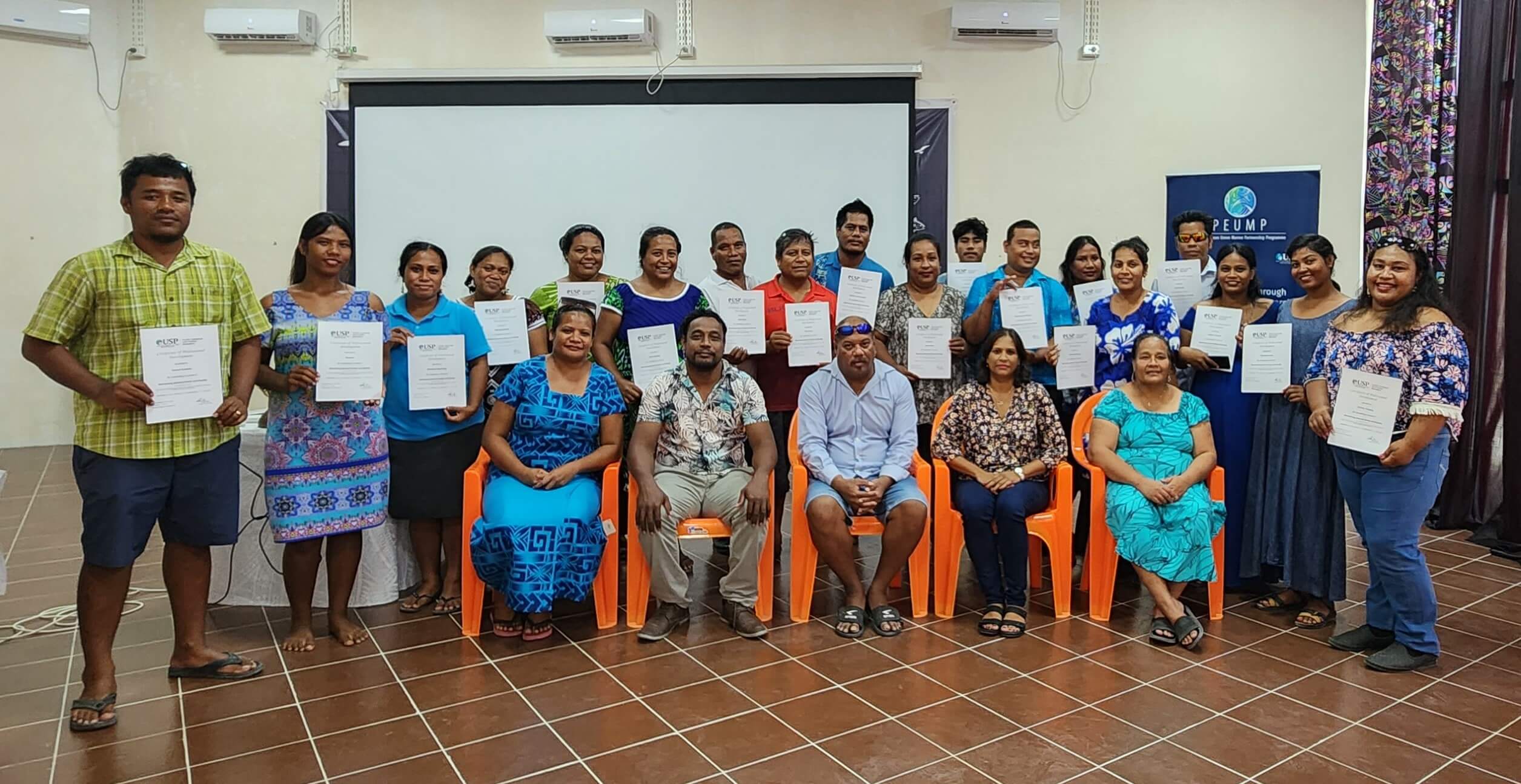Related News

In continuation of the ongoing capacity building on the island nation of Kiribati, approximately 25 participants completed two micro-qualification trainings on “Micro-Qualification in Establishing and Operating a Small Seafood Business” and “Maintaining Seafood Safety and Quality” on Kiritimati Island from 12 to 23 of this month.
This was made possible through the European Union and Government of Sweden-funded University of the South Pacific (USP) Pacific European Union Marine Partnership (PEUMP) project. These trainings aim to upskill learners to improve their seafood businesses and safety and quality practices from ‘hook-to-plate.’
Tereere Tioti, Director of the Department of Competent Authority at the Kiribati Ministry of Fisheries, Marine Resources Development, stated, “Fish is our main resource, and we need to encourage the establishment of small seafood businesses while ensuring the optimum quality of the fish and/or marine resources to help sustain the business and increase profits”.
“This training complements our work at the Kiribati Ministry of Fisheries and Marine Resources Development, strengthening business knowledge and seafood handling aspects for our local vendors and fishers, which helps to enhance the quality of fish products while maintaining their freshness.”
This programme strengthens knowledge, skills, and competencies in ensuring the successful start-up of a small seafood business, along with the guarantee of safety and quality standards post-harvest by demonstrating basic post-harvest seafood handling skills, outlining causes of seafood spoilage and quality control factors, and applying inspection techniques and guidelines to maintain seafood quality.
“As the seafood industry continues to evolve, professionals within the seafood industry must upskill and adapt to these changes,” emphasized Shirleen Bala, the course developer and trainer for USP PEUMP.
“Our two Micro-Qualifications are tailored to meet these needs, equipping individuals with the knowledge and skills to thrive in this dynamic sector.”
Mouanibou Ngaruenga, a small seafood business owner, shared, “As a small seafood business owner, these trainings have been eye-opening. It has motivated me to improve my business, hygiene, and fish handling practices, from the hook to the market and even in my home. I also learned new techniques for drying fish. I thank the USP PEUMP project for bringing this valuable training to Christmas Island.”
These trainings will be carried out next in Samoa and may be followed by other upskilling programs such as value chain analysis, upscaling community-based management, financial literacy, and leadership training.
USP is one of four key implementing partners of the PEUMP Programme, a EUR 45 million programme that promotes sustainable management and sound ocean governance for food security and economic growth while addressing climate change resilience and the conservation of marine biodiversity.
It follows a comprehensive approach, integrating issues related to ocean fisheries, coastal fisheries, community development, marine conservation, and capacity building under one regional action. The PEUMP programme is housed under the Institute of Marine Resources within the School of Agriculture, Geography, Environment, Ocean and Natural Sciences (SAGEONS) at USP.